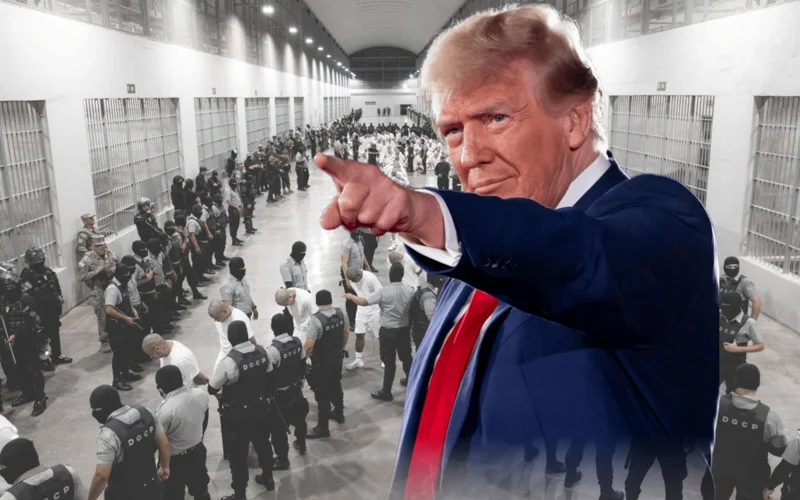Trump plans to send U.S. citizens to El Salvador prisons
On Monday, U.S. President Donald Trump reiterated his controversial proposal to send U.S. citizens convicted of violent crimes to prisons in El Salvador, reports a Kazinform News Agency correspondent.

During a meeting at the White House with El Salvador’s President Nayib Bukele, Trump once again floated the idea, telling Bukele, “Home-growns are next. The home-grown criminals. You gotta build about five more places...It’s not big enough.”
Trump, who has partnered with Bukele on immigrant deportation policies, has previously expressed admiration for El Salvador’s approach to crime, particularly the notorious CECOT mega-prison known for its harsh conditions. In his remarks, Trump made it clear he is referring to violent offenders, stating, “I’m talking about violent people. I’m talking about really bad people. Really bad people. Every bit as bad as the ones coming in.”
Bukele, responding with apparent enthusiasm, said, “In fact, Mr. President, you have 350 million people to liberate. You know, but to liberate 350 million people, you have to imprison some.”
Despite the political show of unity, legal experts have raised serious constitutional concerns. U.S. citizens cannot be deported, and forcing them into foreign prisons could violate due process rights and protections against cruel and unusual punishment. Legal scholar Lauren-Brooke Eisen noted, “It is illegal to expatriate U.S. citizens for a crime,” and pointed out that even transferring federal inmates abroad may conflict with the First Step Act—legislation Trump himself signed in 2018, which requires federal prisoners be housed close to home.
The Trump administration has already deported non-citizens to CECOT, including Venezuelans who were reportedly given no hearing or legal recourse. Supreme Court Justice Sonia Sotomayor warned that the administration’s interpretation of deportation powers could allow even citizens to be “taken off the streets”.
“The implication of the government’s position is that not only noncitizens but also United States citizens could be taken off the streets, forced onto planes, and confined to foreign prisons with no opportunity for redress if judicial review is denied unlawfully before removal,” she wrote.
While some argue that a narrow loophole exists—stripping naturalized citizens of their status for certain offenses—most experts agree the U.S. Constitution remains a firm barrier against the forced expatriation of its citizens.
Earlier, it was reported that U.S. President Donald Trump’s administration had exempted smartphones, computers, and several other electronic devices from a sweeping set of reciprocal tariffs, offering relief to South Korea’s Samsung Electronics Co., Apple Inc., and other global tech firms.
